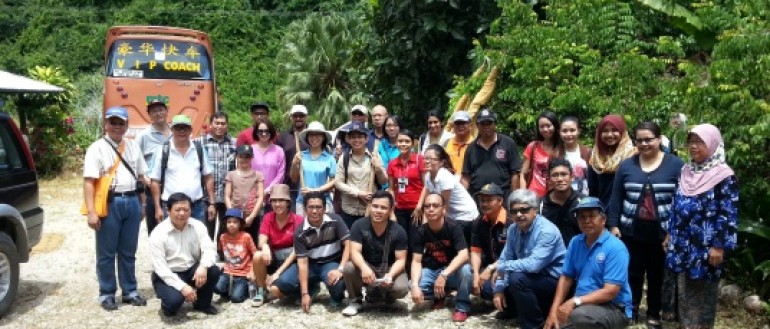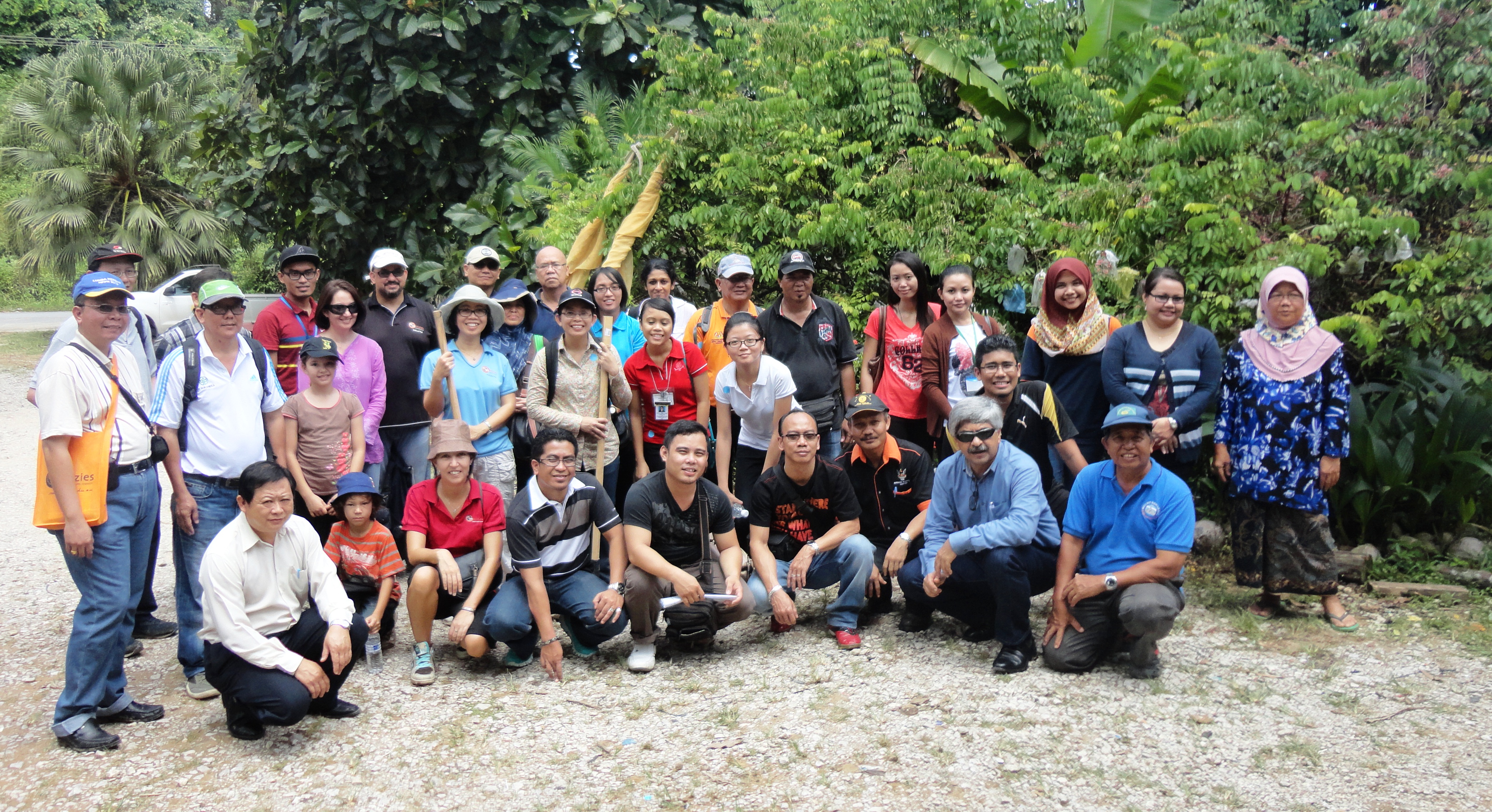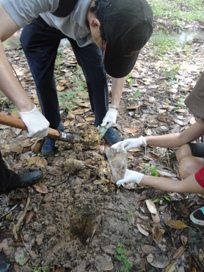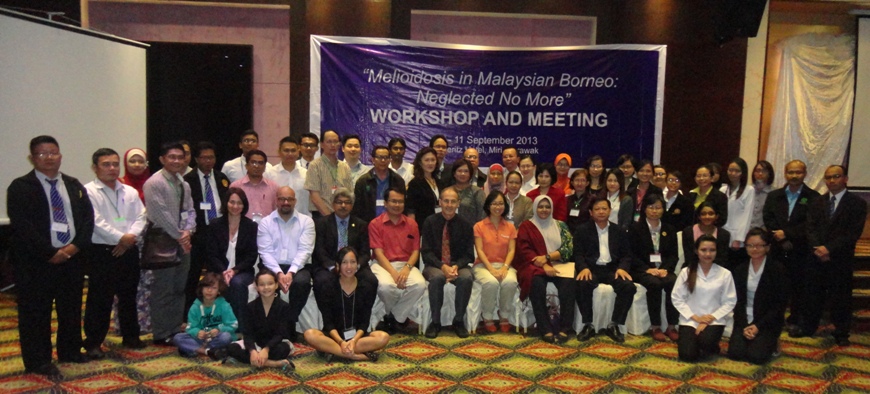Every year probably thousands of people in South East Asia are affected by the debilitating infectious disease melioidosis, with the majority still likely to be undiagnosed.
Melioidosis causes local and generalised infection; often presenting with pneumonia – and then, for the especially unlucky, septic shock and death.
The bacterium Burkholderia pseudomallei lives below the soil's surface during the dry season, but after heavy rainfall can move to and quickly multiply in surface water and mud. The bacteria and melioidosis are a particular problem in rural areas and aerosolisation of B. pseudomallei is likely to occur during severe weather events. .
With limited resources for diagnosis and treatment, the mortality rate of melioidosis in South East Asia, remains at up to 50 per cent.
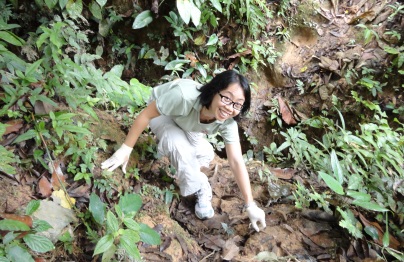
Although melioidosis is an important disease in Malaysia, it is still underreported and under-diagnosed, particularly in Malaysian Borneo. This is due to lack of awareness of the disease as well as difficulties with access to resources including primary healthcare and laboratory microbiology diagnostics, especially for the rural population.
A key part of her PhD involved conducting a three day workshop in Miri, Sarawak led by Menzies School of Health Research to consolidate the data she has collected and to provide feedback to the stakeholders on the implications of her PhD.
She received a grant of AUD $15 000 from the Australia-Malaysia Institute of the Department of Foreign Affairs and Trade of Australia and organised 60 participants to attend. This comprised infectious diseases physicians (adult and paediatric), nurses, public health physicians, public health officers, veterinarians and laboratory scientists.
Below Yuwana explains how the day went below.
What activities did you undertake in the workshop?
- Clinical management of melioidosis in adult and paediatric cases
- Laboratory diagnosis of B. pseudomallei
- Environmental diagnosis of melioidosis including detection of B. pseudomallei in the environment
- Public health – Outbreak/case investigation and public awareness
- Veterinary melioidosis cases – Epidemiology, management and case investigation.
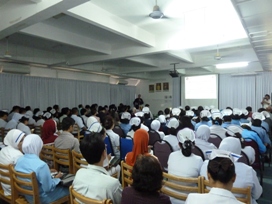
We also provided a hands-on training on environmental sampling to detect B. pseudomallei in soil and water in a local farm about 50 kilometres from Miri city centre.
Participants were divided into three smaller groups where they were taught to assess areas where the bacteria would most likely be found.
They learnt about the proper techniques of soil and water sample collection including methods of sterilizing the soil digging equipment used and were given an opportunity to practice these.
The hands-on training was very important because most of the participants were environmental health officers and veterinary officers who will be investigating actual melioidosis cases that occur in Malaysian Borneo.
This new technique added value to their professional development and will help improve the case investigation protocol of the local health departments.
Above: Group photo of participants of the environmental sampling training.
What were some of the highlights?
The workshop further strengthened the ongoing melioidosis research collaboration between researchers, clinicians as well as public health personnel from various institutions. New collaborations were also established.
Gaps on current practices of clinical and laboratory diagnosis of melioidosis were identified and recommendations were made to address these gaps. Research ideas based on some of these gaps were explored for future grant applications.
Left: One of the participants putting soil sample into a bag
As a result of discussions and transfer of knowledge during the workshop, collective recommendations were made to the Sarawak State Health Department.
These recommendations were on the improvement of the current practices of clinical and laboratory diagnosis, case management of melioidosis and reporting criteria of melioidosis in the state; a clear example of research translation where findings from a research were translated into policy changes.
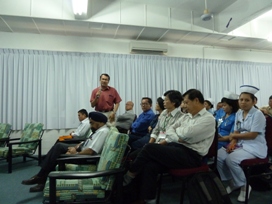
Above: Dr Timothy William, an infectious diseases physician from Sabah providing his insight on a case during a discussion at Miri Hospital
Above: Group photo of the participants and the trainers of the melioidosis workshop at Meritz hotel, Miri, Sarawak. The trainers were Professor Bart Currie, Mark Mayo, Yuwana Podin, Vanessa Theobald and Dr Jodie Low-Choy
Further background:
Thank you to the 60 participants that attended the workshop, a full list is available below.
Three learning institutions:
- Menzies School of Health Research, Darwin, Australia
- Universiti Malaysia Sarawak (UNIMAS), Sarawak
- International Islamic University Malaysia, Pahang
Eight health offices:
- Sarawak Health Department Headquarters
- Sabah Health Department Headquarters
- District Health Offices (Miri, Kuching, Marudi, Kapit, Belaga, Julau)
Eight hospitals:
- Sarawak General Hospital, Kuching
- Sibu Hospital
- Bintulu Hospital
- Miri Hospital
- Kapit Hospital
- Sultanah Bahiyah Hospital, Kedah
- Queen Elizabeth Hospital, Sabah
- Royal Darwin Hospital, Northern Territory, Australia
Four veterinary services:
- Sarawak Veterinary Department Headquarters
- Limbang Veterinary Services
- Julau Veterinary Services
- Darwin Veterinary Services, Australia.
There were also up to 200 additional participants who attended the Continuous Medical Education (CME) and the melioidosis case presentation discussions held at Miri Hospital on day two of the workshop.

